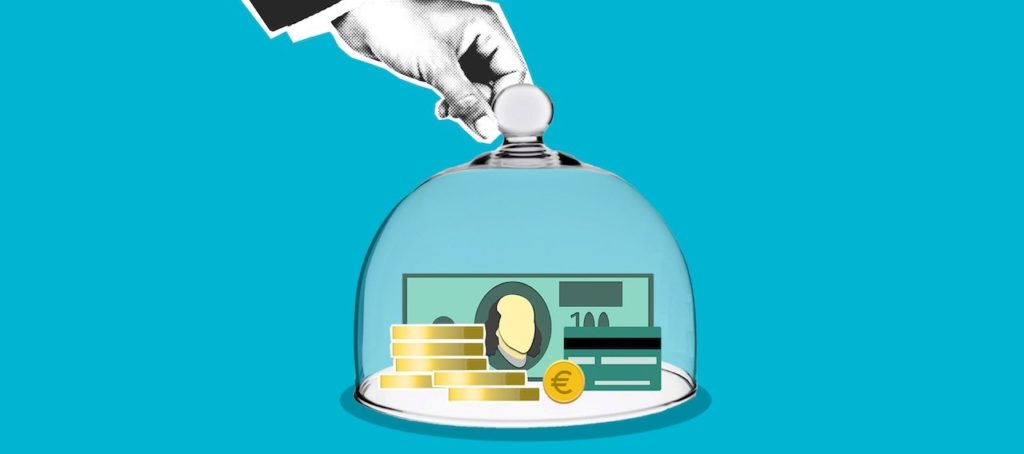Table of Contents
Credit card vs debit card which is better? This is a question we hear whenever we are out shopping, buying gas or anything else we plan to use a card for. Most of us have gotten away from using cash for our everyday purchases. A lot of people think that credit cards and debit cards are the same thing, however, they are different products and each one has its Pros and Cons.
Credit cards provide a line of credit by the card issuer which is usually a bank. Debit cards deduct money directly from your account. In this video, you will learn some of the differences between credit cards and debit cards as well as some advantages and disadvantages of both.
Before we move on, please take the time to subscribe to our channel and click the bell icon to receive notification of new videos.
Credit Card Advantages

- Insurance Coverage
One of the benefits that makes using a credit card attractive is they offer personal accident coverage as well as comprehensive travel insurance coverage.
- Offers Safety
It is safer to carry credit cards instead of cash especially when you need to make large purchases. Pulling out large amounts of cash entices criminals and increases your chances of being robbed.
- Track Expenses
Credit card companies send out monthly statements that help you keep track of the amount and types of items you’re spending your money on.
- Improves credit Score
If you pay your charges on time and use your credit card correctly it will help increase your credit score.
- Most Accepted Payment Method
You can use a credit card to pay for almost anything anywhere as it is the most accepted form of payment.
Credit Card Disadvantages
- High Interest Payments
If you do not make your payments on time and carry a balance every month, you will incur high interest payments.
- Late Fees
Credit card companies will charge you late fees if you do not pay at least the minimum balance by the due date. They cannot charge you more than the amount specified by law and usually you must miss two payments within a 6-month period to incur a late fee.
- Overspending
Many people tend to overspend and go beyond their budget when they use credit cards.
- Damaged Credit
Your credit can be easily damaged when you do not make at least your minimal payments each month. This causes a negative effect on your credit.
- High Cash Advance Fees
When you withdraw cash with a credit card you can be charged a fee of about 3% of the transaction amount.
Debit Card Advantages
- No Annual Fees
Most debit cards do not have an annual fee although you may be billed for a maintenance or service charge.
- No interest Charges
You are not charged interest as you are using your own money.
- Security
Debit cards offer a higher level of security because in most cases you must enter a PIN code to access your funds.
- Budgeting
Debit cards are great to assist you with staying on a budget. You can only use the funds available in your account.
- Debt Reduction
Using your own money from your debit card keeps you from spending what you don’t have or will receive at a later date.
Debit Card Disadvantages
- Difficult to Dispute
It is difficult to dispute fraudulent charges on your debit card if someone gets a hold of your PIN code with or without your permission.
- ATM Fees
Some financial institutions offer no or a limited number of ATM withdrawals. After that number has been reached you must pay a fee to both the ATM owner and the debit card issuer.
- No Credit Allowed
In most instances you can only spend what you have in your account. If an emergency occurs there is no credit allowed.
- Damaged Credit
Your credit can be easily damaged when you do not make at least your minimal payments each month. This causes a negative effect on your credit.
- Large Purchase Complications
When you need to make a large purchase that exceeds your daily limit, you must contact the financial institution to lift the restriction and increase your daily limit.
Some additional Differences between credit cards and charge cards
- Debit card funds are used from your bank account while credit cards provide a line of credit that you pay at a later date.
- Debit cards do not build credit history but credit cards will.
- You are only liable for a maximum of $50 if your credit card is stolen but with your debit card, it depends on how quickly you report the loss.
- Debit Card funds can be added by making a deposit or reloading the card whereas credit cards have a specified limit.
- Credit cards incur interest fees and there are no interest fees with debit cards.
- Debit cards can be difficult to use on expensive purchases and credit cards are easy up to your allowed limit.
- There isn’t any debt with a debit card but you carry a debt when using a credit card.
In conclusion, both debit and credit cards have their own advantages and disadvantages. Debit cards are a great option for those who want to control their spending and avoid debt, as they only allow you to spend the money you have in your account. However, they may not offer the same level of protection as credit cards in the event of fraudulent transactions or disputes with merchants.
On the other hand, credit cards offer greater flexibility and rewards programs, allowing you to earn points or cashback on your purchases. They also provide better fraud protection and can help you build your credit score when used responsibly. However, it’s important to be mindful of high interest rates and fees associated with credit cards, which can quickly add up if you carry a balance.
Ultimately, the choice between a debit or credit card depends on your personal financial situation and spending habits. Whether you opt for a debit or credit card, it’s important to use it responsibly and stay within your means to avoid unnecessary debt and financial stress.



